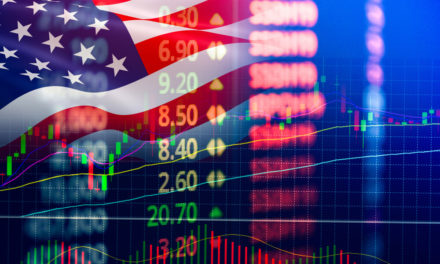Most of us had never heard of Evergrande until last week.
And if you’re still unsure what Evergrande is and why on earth it caused the markets to go into convulsions a week ago, don’t worry. I’ve got you covered.
Evergrande is one of the largest real estate development companies in the world, and it’s been a major beneficiary of China’s property boom of the past decade.
China built its wealth on an export-led model. But following the 2008 meltdown, its leaders tweaked policy to favor domestic investment.
Well, that had its benefits. China’s destiny became less tied to the appetite of Western consumers. Today, China has some of the best infrastructure in the world, at least in its developed coastal areas.
But there were excesses … and China’s leadership started to get uncomfortable with what was starting to look more like a property bubble with each passing day. China passed new rules attempting to manage the bubble and dissuade borrowing. That, in turn, put pressure on Evergrande’s businesses … which brings us to today.
The company owes more than $300 billion and isn’t able to meet its interest payments.
Today, I’ll show you what this all means for you.
Why Evergrande Doesn’t Matter to Us
The Great Recession wasn’t all that long ago. We remember all too well what happens when the property sector goes bust and takes down the banking system with it.
Things started getting rocky in the U.S. by the end of 2007, but it wasn’t until Lehman Brothers failed in September of 2008 that the wheels fell off. That’s when the stock market went into convulsions and the entire banking system came close to imploding.
The Federal Reserve and the Treasury stepped in to stop the bleeding. But even then, the damage was done. We had the deepest recession in decades, and it took years to put things back together.
I don’t see China facing a “Lehman Brothers moment,” per se.
China can backstop its banks and prevent widespread failures. That’s not hard to do in a controlled, top-down economy.
Evergrande might be allowed to fail with the Chinese government stepping in to make sure it doesn’t take down the financial system.
But here’s the deal…
Why Evergrande Does Matter to Us
We don’t need to see a Lehman-style meltdown for things to get nasty.
Beijing knows that China’s corporate sector has too much debt. We all know that. We’ve known it for years.
But deleveraging is hard. If you borrow a dollar (or yuan) to spend today, it’s a dollar that you won’t spend tomorrow … unless you also borrow more tomorrow.
Reducing debt, or even slowing its growth, means that you’re draining demand out of the system.
Less debt means fewer new construction projects, which means fewer construction jobs … and cable TV installations … and furniture sales…
The list goes on.
Let’s think bigger. China is the world’s biggest consumer of most industrial commodities, particularly those tied to construction, such as copper. China gobbled up 54% of all copper mined and sold last year.
A serious slowdown in China’s domestic investment means a major reduction in global demand for commodities … which means slower growth in Latin America, Southeast Asia and even developed exporters, including Australia and Canada.
And what about all of those Chinese consumers that make Western companies salivate?
As an example, in any given year, Starbucks earns about 20% of its revenues from China, and Apple takes in about 17%.
Do you think a hard landing in China won’t have a massive influence on sales and earnings growth for these companies?
So, while Evergrande may go supernova in the coming days or weeks, China has a serious problem on its hands … and a problem for China is a problem for the rest of the world.
Some people might see this as doom and gloom.
Not me … and not our chief investment strategist Adam O’Dell.
A Tactical Short-Term Opportunity
We see this as an opportunity to be tactical.
Taking advantage of short-term moves in the market is Adam’s specialty.
And he just introduced a strategy he calls the “simplest trade ever.”
He beta tested this strategy live with our colleagues for over six months. They made a single trade every Monday … and closed it out the same Wednesday.
Following this 48-hour trading strategy, they crushed the market by 51X.
That isn’t a typo. Adam is confident this short-term strategy will allow him to find triple-digit profit opportunities in any market — no matter what happens in China or anywhere else.
To safe profits,
Charles Sizemore
Co-Editor, Green Zone Fortunes
Charles Sizemore is the co-editor of Green Zone Fortunes and specializes in income and retirement topics. He is also a frequent guest on CNBC, Bloomberg and Fox Business.






